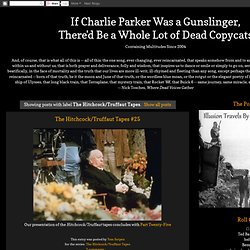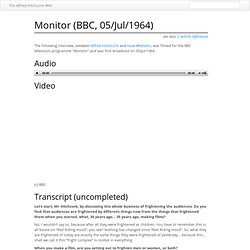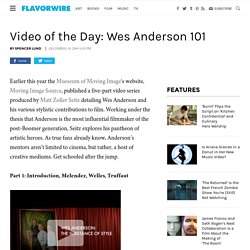

Michel Gondry. Chaplin. Woody Allen. François Truffaut. JLG / Godard. Hitchcock. Entretiens Hitchcock - Truffaut Audi. One of the more curious passages in Hitchcock/Truffaut takes center-stage inPart Eight of The Hitchcock/Truffaut Tapes.

Before the exploration of his largely triumphal career in Hollywood commences, Alfred Hitchcock is asked to render a few observations on the current state of Cinema in Great Britain, as well as his own role in its history. Before the Master of Suspense can get an answer rolling, however, a somewhat less-than-restrained François Truffaut proceeds -- seeming aware of how awkward his interruption is -- to offer his own remarkably strident view: To him, British cinema before the arrival of Hitchcock in the late 1920s had been at best a languid affair; a strain of cinematic expression overwhelmed and brought low by a frightful inanition that seemed to have telling implications about Britain's national character.
It's hard to discern the extent to which Truffaut did or did not believe this. Think about it a second. Interview: Alfred Hitchcock and Huw Wheldon (BBC, 05/Jul/1964) - The following interview, between Alfred Hitchcock and Huw Wheldon, was filmed for the BBC television programme "Monitor" and was first broadcast on 05/Jul/1964.

Audio Video (c) BBC Transcript (uncompleted) Video of the Day: Wes Anderson 101. Earlier this year the Mueseum of Moving Image‘s website, Moving Image Source, published a five-part video series produced by Matt Zoller Seitz detailing Wes Anderson and his various stylistic contributions to film.

Working under the thesis that Anderson is the most influential filmmaker of the post-Boomer generation, Seitz explores his pantheon of artistic heroes. As true fans already know, Anderson’s mentors aren’t limited to cinema, but rather, a host of creative mediums.